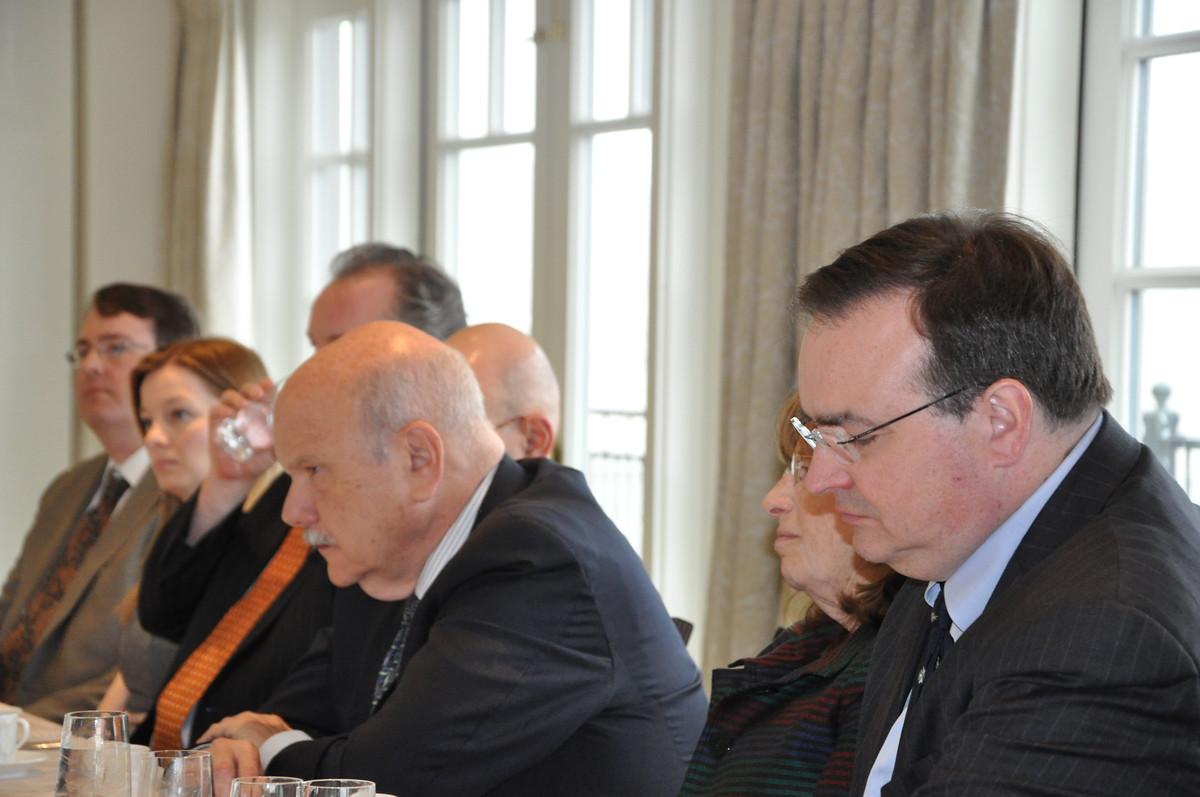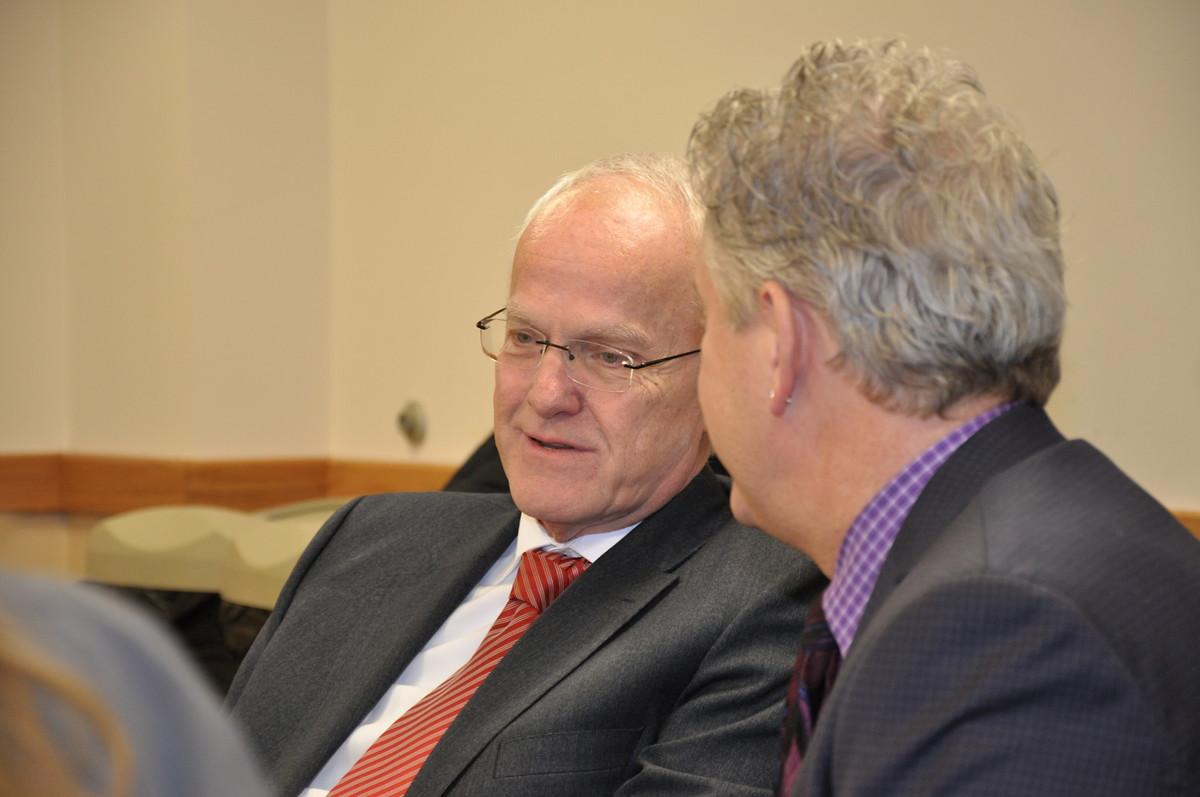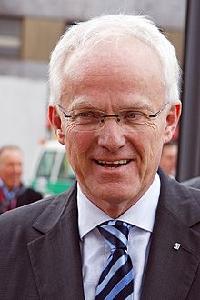Event reports
For Dr. Rüttgers and his interlocutors, the revelations of Edward Snowden and the ensuing problems in transatlantic trust and especially the German-American relationship were a big topic. In many discussions, Dr. Rüttgers made clear that the surveillance of Angela Merkel’s phone is a lesser problem than the overarching issue of trust in the U.S. He underlined that it is important for Germans to gain new trust in the U.S. as the idea of freedom and informational self-determination is a topic of special interest against the background of German history. Dr. Rüttgers doubted the efficiency of the bulk data collection by the NSA, noting that the experience with the Stasi shows that they knew everything but understood nothing. For this reason, one has to look for innovative means in order to fight terrorism.
Dr. Rüttgers’ meeting partners outlined the American perspective, with many mentioning that it is a major challenge to show German society that the NSA is not only a problem for Germans but also for Americans. Members of different think tanks criticized the lack of transparency of the NSA’s work. The NSA also featured prominently in discussion with Members of the U.S. Congress, including a technical explanation of how the metadata collection program works and the reasons why it was created in that way.
According to Dr. Rüttgers, the U.S. and Germany must think about a new basis for the future relationship and a foundation of shared values. Dr. Rüttgers made the point that the Transatlantic Trade and Investment Partnership (TTIP) is incredibly important but could not be the (only, or even major) foundation for the future transatlantic relationship. Generally, Dr. Rüttgers acknowledged the value of TTIP but he did not think that an economic agreement could work as an overall foundation to restoring trust in the relationship. Furthermore, it would be important to promote the public support for TTIP as the general public does not hear much news coverage about the advantages of such an agreement - being merely a trade partnership.
The third overarching topic during the dialog program was the crisis in Ukraine. Dr. Rüttgers noted that it is important to find a solution together with Russia and not against it. Taking reference to the often mentioned “hour of Europe”, Dr. Rüttgers underlined the chance of an “hour of the transatlantic partners” in the current challenges, which would help to overcome the current difficulties in this partnership as well. According to Dr. Rüttgers, the focus for a solution of the crisis in Ukraine must be on the people. Therefore, a division of the country could not work as a satisfying solution. One has to look for innovative strategies, such as a closer collaboration of the Ukraine and the European Union. This would be extremely important against the background of the possibility of further outbreaks of crises on the border of the EU.
The NSA, TTIP and Ukraine were topics that led to many interesting discussions with meeting partners in the U.S. government and at prominent organizations such as the American Council on Germany, American Institute for Contemporary German Studies, Center for American Progress, Center for Strategic and International Studies, and German Marshall Fund. In addition, Dr. Rüttgers had a number of meetings about special themes in discussions with the American Jewish Committee, International Monetary Fund and World Bank. In addition, Dr. Rüttgers met with business representatives in Washington, D.C. and Boston to get their perspectives on the NSA and TTIP. He also made a point during his dense program to meet with students at Georgetown University and Harvard University to gain new insight into how the future generation of transatlantic leaders views the relationship between the U.S. and Germany.








